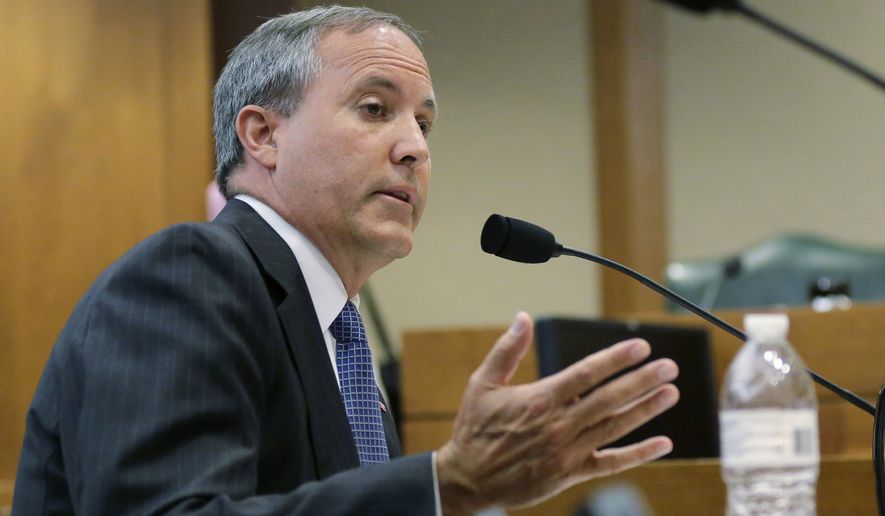A federal judge in Texas is weighing whether the state can require a woman to bury or cremate her aborted fetus during a trial this week that pro-life and pro-choice activists predict could be the first abortion test for a newly configured Supreme Court next year.
Abortion providers challenged the Texas law, which was enacted last year, arguing that requiring burial or cremation invades a woman’s right to privacy and is an attempt to shame a woman seeking an abortion.
Health care facilities traditionally have disposed of fetal remains in the same way they handle tissues and organs after surgery, but lawmakers in Texas and other states argue that burial or cremation is in the interest of human dignity.
“Texas has chosen to respect unborn life by adopting rules requiring the dignified treatment of fetal remains,” Texas Attorney General Ken Paxton said. “At the trial, we’ll demonstrate that the rules are constitutional and do not impact the abortion procedure or the availability of abortion in Texas.”
The judge blocked the law from taking effect pending trial, citing concerns that it could significantly burden access to abortion.
Arkansas and Louisiana enacted similar legislation, but courts also halted those laws. A trial considering Louisiana’s fetal tissue disposal requirements is scheduled for next year.
The laws have energized pro-life advocates, who say the legislation is centered on common sense: that life begins in the womb.
“With laws like this increasingly being passed in states across the country, pro-abortion activists have to confront the truth or argue that human beings should end up in a landfill or a medical waste bag,” said Rachel Busick, counsel for Americans United for Life.
Amy Hagstrom Miller, president of Whole Woman’s Health, testified this week at the Texas trial that women can request funeral services. Her clinics are among those that are bringing the case to court.
“This is the state stepping into private and religious and moral issues that should be up to a woman and her family,” she said.
Molly Duane from the Center for Reproductive Rights, who is representing the clinics, said the law also involves consent forms with respect to funeral homes that take the tissue away from a woman or her family, triggering privacy rights.
“The testimony we are going to see later today and the next couple days may bear on that important issue of patient privacy,” Ms. Duane told The Washington Times.
“All this law does is say to women their choices are wrong,” she said. “That really goes to the heart of the constitutional right it protects — the right to abortion.”
The weeklong trial in Austin is expected to conclude Friday.
Last month, the 7th U.S. Circuit Court of Appeals struck down a similar law out of Indiana.
Indiana has until September to appeal to the Supreme Court, which could bring the abortion debate back before the nation’s highest court if it grants review, giving the justices another chance to review Roe v. Wade, the 1973 landmark case making abortion a constitutional right.
“They are human beings. They are not medical waste. It puts the point to the whole question, which is: Are aborted fetuses human beings or not?” said Steve Aden, chief counsel of Americans United for Life.
Pro-life advocates said this could be the first Supreme Court abortion case for Brett M. Kavanaugh if the Trump nominee is confirmed this year.
• Alex Swoyer can be reached at aswoyer@washingtontimes.com.




Please read our comment policy before commenting.